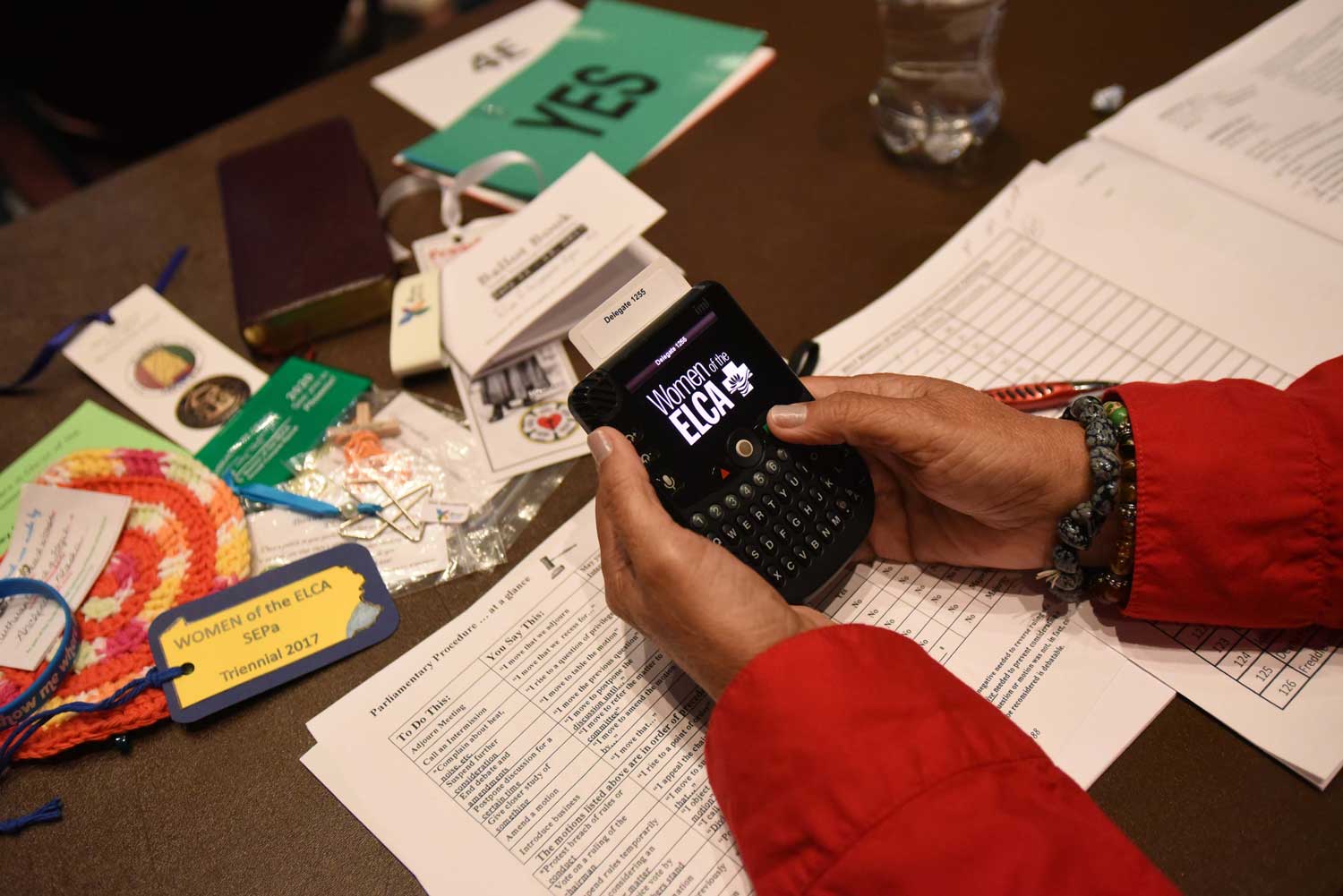When women gather in convention and need to conduct business, a formal method is needed for presenting and acting on business. If we didn’t have that a convention could quickly devolve into something like an unruly classroom with a clueless substitute teacher. We conduct organizational business through the formal method of resolutions and memorials. This might seem fairly antiquated in today’s informal world where people communicate in character-limited tweets and shared photos are deleted within 10 seconds after being viewed, but that’s the formal way to present business to a convention.
Think of a resolution as:
- a way to participate in the democratic process and have your voice heard
- a means of educating women about a particular need or concern
- a vehicle for inspiring others to take a particular action.
Resolutions are also a way to plan and think ahead and to hold our community accountable for the commitments we make at conventions.
What’s the difference between a resolution and a memorial?
A memorial is the way in which one expression of our organization formally makes a request of another. A memorial comes to a triennial convention by and through actions taken at a synodical women’s organization.
So, for instance, imagine a synodical convention considering a resolution that has as one of its actions a request that the churchwide organization produce resources around a given theme or that the executive director communicate the organization’s position on a topic to an elected official. The resolution, once adopted in the SWO convention, becomes a memorial to the triennial convention. The SWO, through the resolution, is memorializing the issue, asking the triennial convention to consider the subject and take an action.
So why talk about resolutions now?
The Eleventh Triennial Convention (2020) will be held in July of 2020. As we meet this year in synodical conventions, we should be considering what issues should come to the triennial convention, the highest legislative authority in our organization.
Should Women of the ELCA be addressing climate change or refugee issues? World hunger or human trafficking? These and more topics? Which expression can best address a given issue? Congregational units, synodical organizations or the churchwide organization? Will our call to act be within the organization only or will we extend the call to others? To our congregations? Or involve ecumenical or interfaith partners?
Now is the time, when you are meeting in synodical conventions, to take actions to be considered by the triennial convention in 2020.
The deadline for submitting memorials to the Eleventh Triennial Convention (2020) is November 30, 2019. All memorials must have been considered and acted upon by an SWO in convention.
What if issues arise after November 30, 2019?
Beyond memorials from SWOs, there is another way for business to come before a triennial convention. At the convention, voting members can bring resolutions to the floor. Resolutions on the floor of the triennial convention allow timely issues to be brought before the body for consideration.
Does somebody look at the memorials and resolutions before they are acted on?
Both memorials and resolutions are reviewed and considered by a committee before coming to the floor of a convention. The committees are made up of voting members, and their work is supported by a churchwide staff member. Committee members read the memorials and resolutions, conduct additional research and analysis as needed, and make recommendations to the convention on how to respond to the requested actions. Written reports are produced by the committees and distributed to voting members.
Under the bylaws of the churchwide constitution, the president of the organization appoints the members of the Memorials Committee and the Reference and Counsel Committee, with the approval of the churchwide executive board. Those committees, consisting of nine members (one voting member from each of the nine ELCA regions), will be determined at the October 2019 meeting of the churchwide executive board.
The Memorials Committee of the Eleventh Triennial Convention (2020) will meet in early 2020, read and consider all the memorials coming from synodical organizations and prepare a written report for the voting members, suggesting how to respond to the memorials. That written report is published in the Convention Program and Reports which is distributed to all voting members in advance of the July convention.
The Reference and Counsel Committee of the Eleventh Triennial Convention (2020) will meet on-site at the convention in Phoenix, Ariz. It will receive all resolutions bringing new business to the floor of the convention. It will read and consider the resolutions and prepare a written report suggesting how to respond to the resolutions. That written report is distributed on-site during the convention.
When memorials or resolutions come to the floor of the convention for discussion and action, the voting members will have the reports of the respective committees and will be acting on the recommendations of the committees. Debate happens on the floor, consistent with the rules of procedure adopted by the convention, and votes are taken. Once adopted, a memorial or resolution takes effect immediately, and all the interested parties begin acting in response to the actions required in the memorial or resolution.
For guidelines on how to write a resolution, visit welca.org/convention. (Algunas directivas para escribir resoluciones)

Memorials from SWOs should be communicated to whom?
Send them to my attention, [email protected]